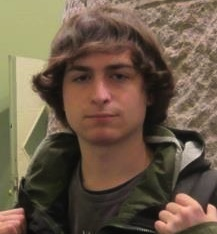 What is your role in the DESI project?
What is your role in the DESI project?
I’m a member of the DESI scientific research staff at NSF’s NOIRLab, where our team works to ensure that DESI performs as expected and will continue to do so throughout its many upcoming years of operations. I’ve been heavily involved in the DESI target selection imaging surveys for over five years. As part of this effort, I’m responsible for processing roughly a quarter petabyte of NASA infrared satellite images. Recently, I’ve shifted toward working with the DESI commissioning team that’s testing all of the newly installed DESI hardware at Kitt Peak’s Mayall telescope via a campaign of preliminary sky observations. Within the DESI commissioning team, I’ve created image processing pipelines to analyze data from the commissioning camera and guider cameras.
Where were you born? Where do you live now? What are the interesting places that standout that your work has taken you to?
I grew up in Bellevue, Washington. I currently live in Tucson, Arizona. The past travel opportunities that stand out to me are DESI-related trips to England and Spain for collaboration meetings, and visiting Cerro Tololo Inter-American Observatory in Chile. Kitt Peak is also great–even though it’s only about an hour’s drive from Tucson, it’s still a world-class astronomical site.
What would you say is the most interesting or exciting thing about your job?
In terms of DESI, I really enjoy working with my fellow collaboration members, who are all extremely talented in different areas of technical expertise. I like that I’m continually learning a lot from interacting with DESI collaborators across many institutions and specializations. More generally, as a scientist, my favorite research projects are those that involve mining huge data sets for rare discoveries.
Any advice for aspiring scientists?
Nowadays there are many ways for everyone to get involved with scientific research, particularly through crowdsourced science initiatives in astronomy and other fields. The Backyard Worlds: Planet 9 project that I co-founded is one such example. Getting involved in crowdsourced science can be a great way to see what the research process is really like in practice, and to learn new skills that will have value even outside of careers in science.
Check out Backyard Worlds Planet 9 project! https://www.zooniverse.org/projects/marckuchner/backyard-worlds-planet-9
